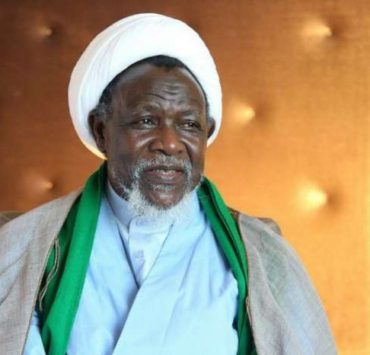U.S. Senate Halts Sale Of Military Equipment To Nigeria

The United States Senate are holding down a proposed sale of weapons and military equipments to Nigeria, as a result of the constant abuse of human rights by the Muhammadu Buhari administration.
Foreign Policy reported that the lawmakers on the Senate Foreign Relations Committee delayed clearing a proposed sale of 12 AH-1 Cobra attack helicopters, 28 helicopter engines produced by GE Aviation, 14 military-grade aircraft navigation systems made by Honeywell, and 2,000 advanced precision kill weapon systems—laser-guided rocket munitions.
The deal is worth $875 million, according to US officials and congressional aides familiar with the matter.
The controversy is believed to be an indication that the lawmakers want the U.S. government to have a rethink on its relationship with Nigeria as Mr Buhari gradually drifts towards authoritarianism.
Even as the country battles the Boko Haram insurgency, Western governments and rights organisations have berated the current administration for its abuse of human rights, particularly the killing of #EndSARS protesters by army personnel, corruption, and the recent suspension of Twitter operations across the country.
In June, Bob Menendez, chairperson of the Senate Foreign Relations Committee, called for a “fundamental rethink of the framework of our overall engagement” with Nigeria during a Senate hearing with U.S. Secretary of State Antony Blinken.
Both Menendez and Sen. Jim Risch, a top Republican on the Senate Foreign Relations Committee, have placed a hold on the proposed arms sale, according to multiple US officials and congressional aides familiar with the matter, who spoke to Foreign Policy on condition of anonymity.
Details on the proposed sale were first sent by the U.S. State Department to Congress in January before Joe Biden assumed office as president.
Some experts had also advised that the U.S. pause the arms sales, pending when it makes a broader assessment of corruption, and the Nigerian military’s effort in minimising civilian casualties in its fight against Boko Haram insurgents and other acts of violence.
“There doesn’t have to be a reason why we don’t provide weapons or equipment to the Nigerian military,” said Judd Devermont, director of the Africa program at the Center for Strategic and International Studies, a think tank. “But it has to be done with an assessment of how it will actually, one, change the direction of conflict in Nigeria, and, two, that they will use it consistent with our laws. In both cases, it’s either a question mark or a fail.”
“There is a culture of impunity that exists around abuses by the military,” said Nigeria researcher at Human Rights Watch, Anietie Ewang.
Ewang cited the Nigerian military’s killing of unarmed protesters during the massive #EndSARS demonstrations against police corruption and brutality last year as well as cases documented by human rights organizations of abuses in the military’s campaign against Boko Haram.
“I’m sure it’s a difficult situation. There are so many conflicts springing up across the country now,” Ewang said.
“The authorities, I presume, are trying to do the best they can to save lives and properties. But this must be done in accordance with human rights standards. You can’t throw one out just to be able to achieve the other.”
Nigeria has only received six out of the 12 Tucano jet fighters purchased from the U.S. government.
Lawyard is a legal media and services platform that provides enlightenment and access to legal services to members of the public (individuals and businesses) while also availing lawyers of needed information on new trends and resources in various areas of legal practice.













